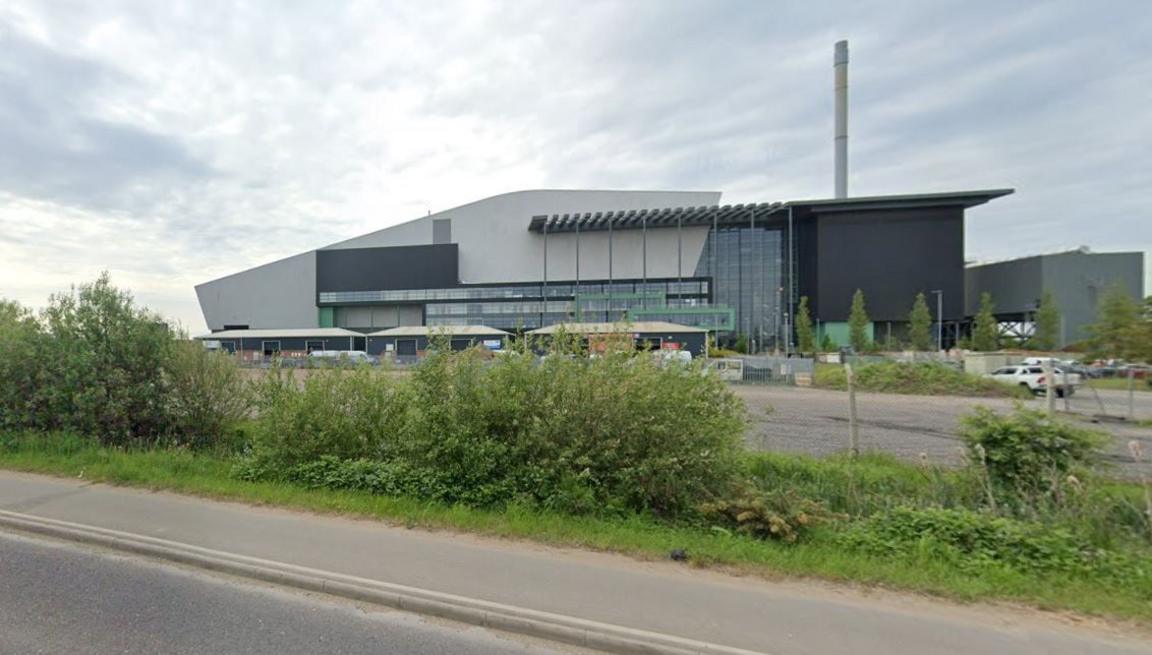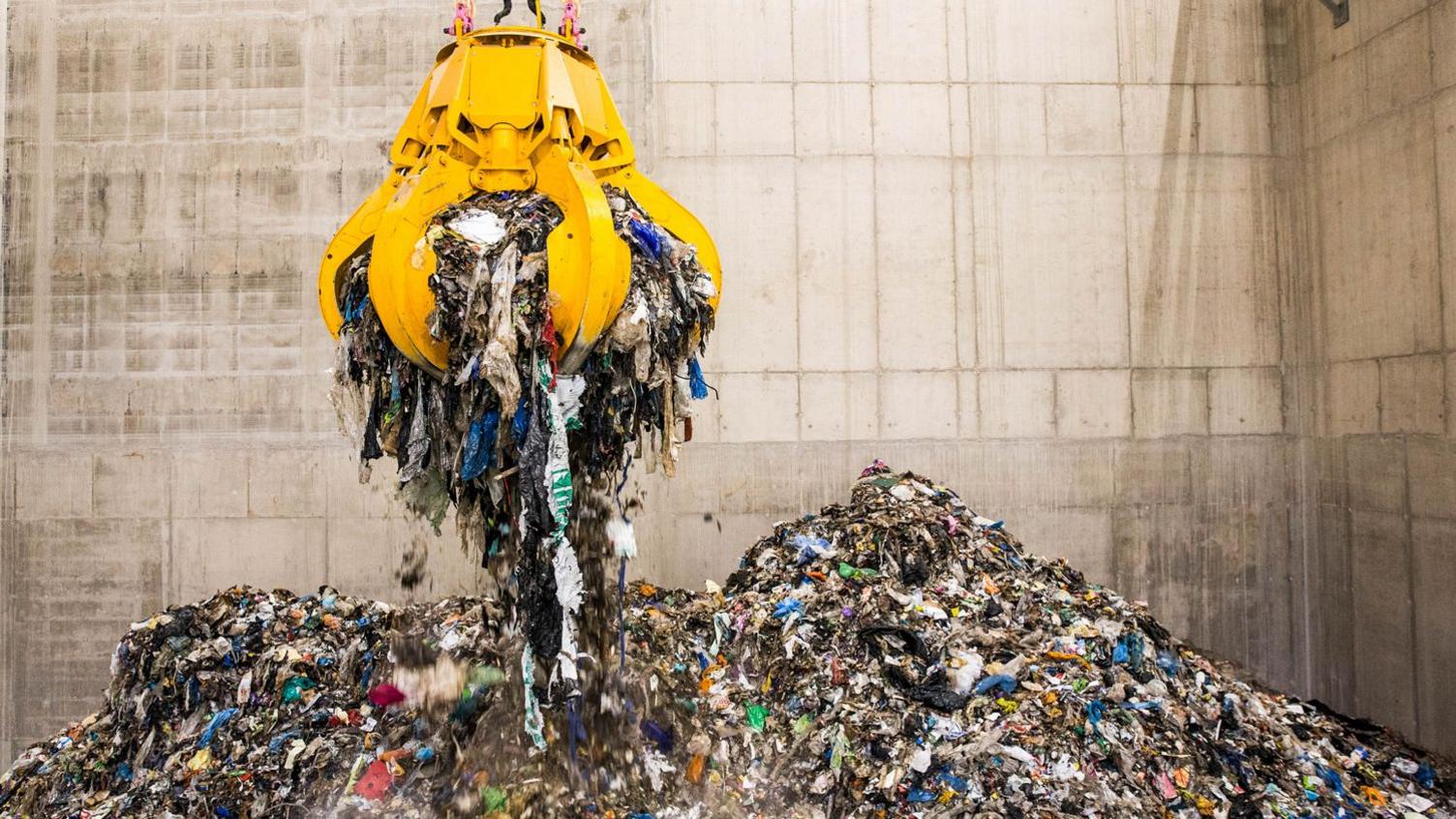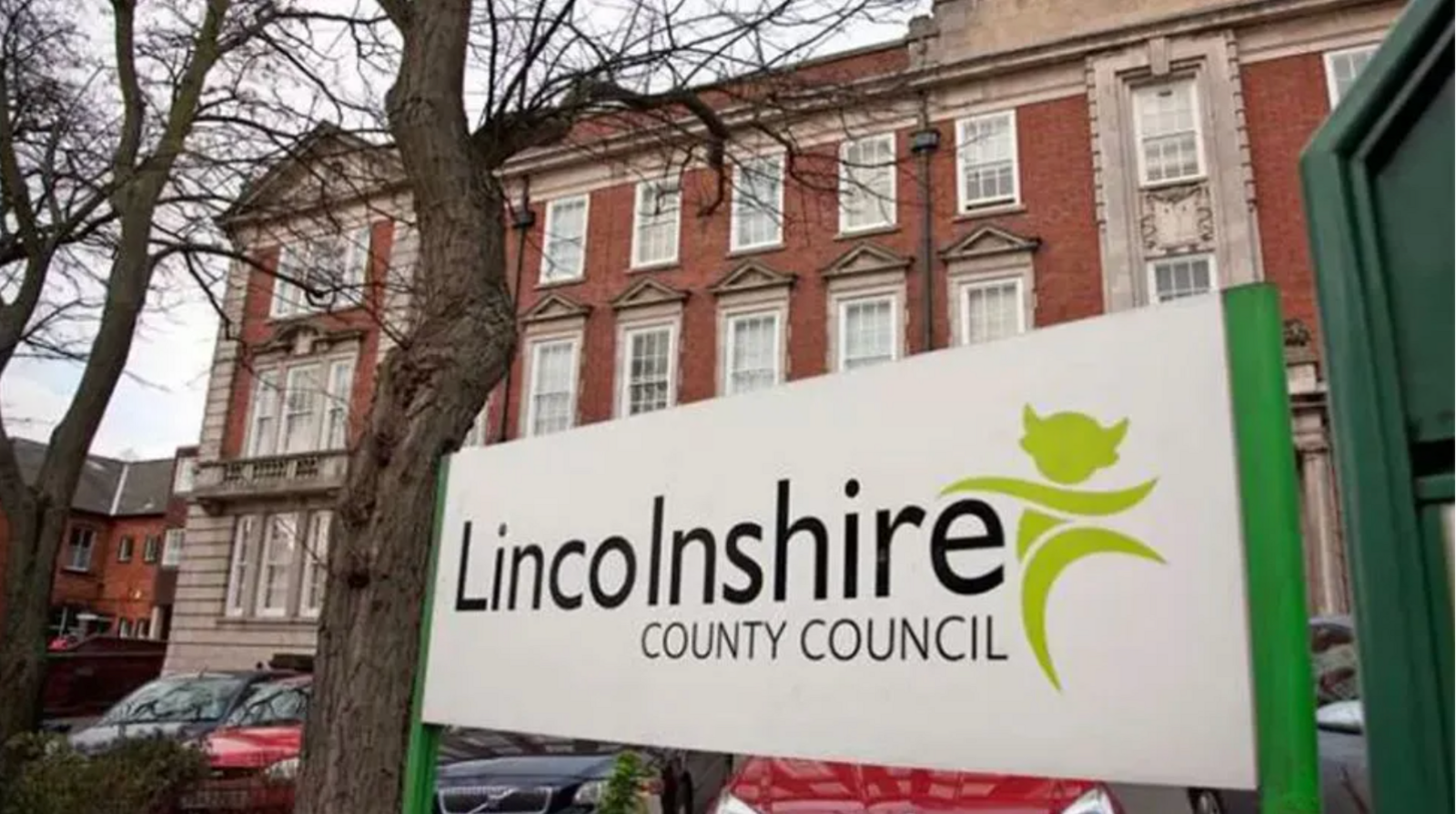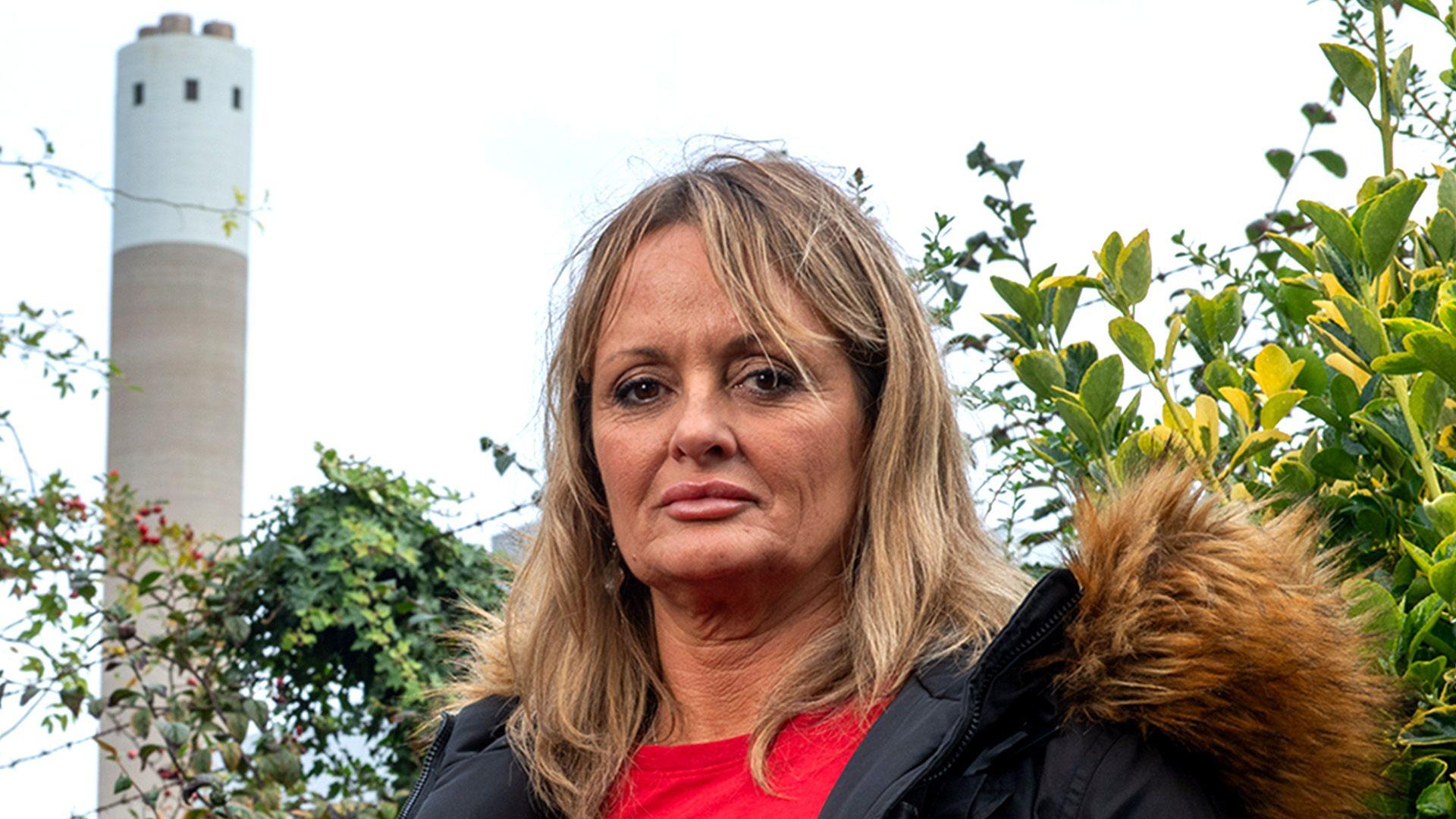Rural road ban for incinerator lorries

There are 116 trips made each week to the incineration plant, according to council officials
- Published
Plans have been announced to stop lorries carrying waste for incineration travelling through villages and along rural roads in Lincolnshire.
Lincolnshire County Council is looking for a new contractor to transport the thousands of tonnes of waste it collects from transfer stations in the county to the incineration plant in North Hykeham, near Lincoln.
Councillors told a meeting it was essential to keep the lorries on A-roads in order to minimise the impact on less built-up areas.
Council leader Martin Hill said the proposals were common sense.
A meeting of the council's executive on Tuesday was told there were currently 116 trips made each week to the incineration plant, according to the Local Democracy Reporting Service.
Councillor Ian Carrington said: “The HGVs should follow clear routing plans. They will be asked to keep to the A-roads and out of rural villages and roads, except in exceptional circumstances such as roadworks and floods.
“It’s essential we minimise the harmful impact," he added.
The council leader welcomed the proposals, while also responding to media reports suggesting that burning household rubbish to make electricity was now "the dirtiest way" the UK generated power, following the closure of the last coal-fired power station.
“It seems like a lazy assumption that incineration is bad. This is efficient and has a minimal impact on the environment," Hill said.
“We must do something with our waste – we might as well turn it into electricity," he added.
According to the council, the facility reduces the amount of the county’s waste going to landfill by about 93% and produces enough electricity to power 27,000 homes.
Listen to highlights from Lincolnshire on BBC Sounds, watch the latest episode of Look North or tell us about a story you think we should be covering here, external.
- Published15 October 2024

- Published26 May 2024

- Published16 October 2024
